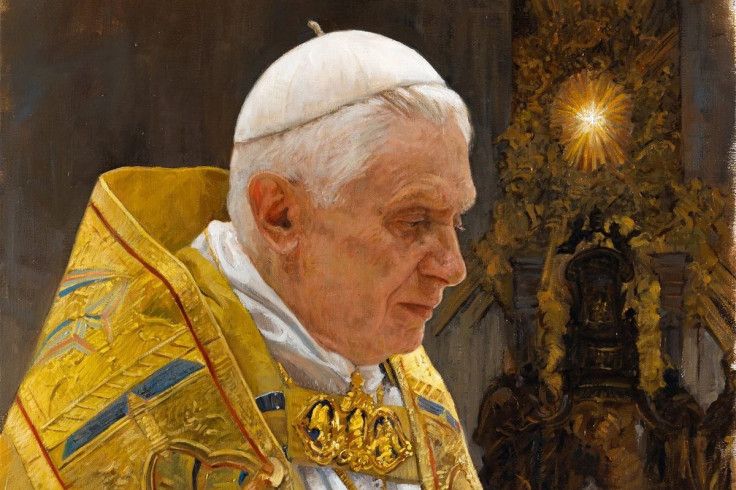
Pope Benedict XVI's life and legacy spark interest, particularly because of his unprecedented resignation from the papacy. What is his current age? What were the underlying reasons for his decision to step down? Is he still alive? These are common questions, alongside observations about the contrasting tenures of Benedict and his successor, Pope Francis.
Pope Francis passed away on 21 April at 88, concluding a significant 12-year period as the first Latin American pope to lead the Catholic Church. His election in 2013 followed an unexpected turning point in papal history: the voluntary departure of Pope Benedict XVI from the Holy See, the central governing body of the Catholic Church and the Vatican City State. That unprecedented move by Pope Benedict XVI stemmed from a combination of factors.
A Historic Departure: Benedict XVI Steps Down
On 11 February 2013, Pope Benedict XVI made a stunning announcement: At 85, he declared he no longer possessed the vigour required to govern the Catholic Church.
His eight-year tenure saw him at the helm of a global Catholic population of about 1.2 billion. Then came a moment that broke with centuries of tradition: his resignation, the first of its kind for a pope in over six hundred years, per the Associated Press.
His pivotal decision opened the path for Pope Francis's election. The sight of both popes residing within the Vatican gardens was a novelty, a living example that could reshape how the Church handles retired pontiffs.
Elected in 2013 after the resignation of Pope Benedict XVI, Francis was the first Jesuit and Latin American pope. His 12-year papacy was marked by calls for reform, climate action, and compassion for the marginalized.
— 𝐃𝐫. 𝐐𝐮𝐞𝐟༆🇺🇬 (@FelixAD6) April 21, 2025
pic.twitter.com/1DKeGUHmW6
His time as pope was marked by the ongoing repercussions of the clerical sex abuse scandal, compounded by a shocking episode where his butler stole confidential documents and shared them with a journalist.
Benedict once likened his papal election to the sensation of a 'guillotine' falling upon him. Given his historic resignation and the unique circumstances of his final years, the question naturally arises: Is Pope Benedict XVI still living?
Remembering Benedict XVI
Pope Benedict XVI passed away on 31 December 2022 at the age of 95. In a significant moment in modern Church history, Pope Francis presided over Benedict's funeral Mass, marking the first instance of a reigning pope eulogising his retired predecessor.
Pope Francis pays his final respects to his predecessor Pope Benedict XVI pic.twitter.com/3oRn7y3iN8
— Catholic Sat (@CatholicSat) January 5, 2023
Two Popes, Diverging Paths: Benedict and Francis Compared
The distinct paths of these two pontiffs, their contrasting styles, and the unique historical context of their papacies naturally invite comparisons between Benedict XVI and Pope Francis. These comparisons often centre on their differing priorities: Benedict's focus on tradition versus Francis's embrace of a more modern, inclusive Church.
The contrasting approaches of the two popes have led to comparisons and, in the view of some, illustrated differing priorities within the Vatican. 'The contrasting approaches of the two popes have led to comparisons and, in the view of some, illustrated differing priorities within the Vatican,' said Archbishop Gallagher.
A 2023 BBC report quoted archbishop Gallagher stating that while the popes enjoyed an excellent relationship, critics of Pope Francis attempted to leverage their differences. To illustrate these points further, a more detailed breakdown of their contrasting approaches reveals specific areas of divergence.
Visions Of The Church: Tradition vs. Inclusion
While Benedict XVI prioritised a traditional, doctrine-focused Church, envisioning a more select faithful, Pope Francis has pursued a path of broader inclusion and mercy, aiming to address social injustices and welcome those on the periphery.
Tradition's Guardian vs. Modern Advocate
Where Benedict XVI stood as a staunch defender of tradition and doctrinal precision, Pope Francis has emerged as an advocate for a Church that engages with the modern world. This divergence in their philosophies has significantly shaped the narrative surrounding their respective leadership.
As the National Catholic Reporter (NCR) and BRILL reported, Pope Francis adopted a markedly simpler lifestyle than his predecessor, forgoing Benedict's ornate papal attire and apartments for a Vatican guesthouse and plain black shoes.
The Shadow of Scandal
Public perception of Benedict XVI's leadership and subsequent comparisons with Pope Francis were notably affected by the crises that defined his tenure, including the widespread sex-abuse scandal and the internal turmoil of Vatileaks.
Adapting to Modern Challenges
While Benedict XVI's leadership leaned towards preserving the Church's existing framework and teachings, Francis's vision is widely understood as an attempt to revitalise and adapt the Church to the realities of the modern world.
A Rare Coexistence: Two Popes in the Vatican
The sheer novelty of two living popes residing within the Vatican has added another layer to the analysis and contrast of Benedict XVI and his successor, Francis.
The unprecedented circumstances surrounding Benedict XVI's resignation and Pope Francis's subsequent papacy have created a unique chapter in Church history that will undoubtedly continue to be studied and debated for years.







